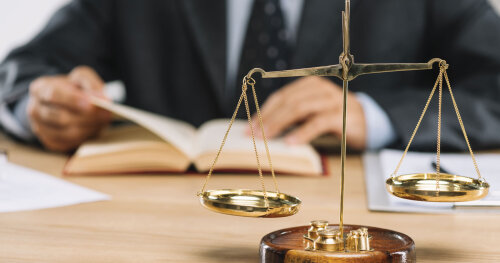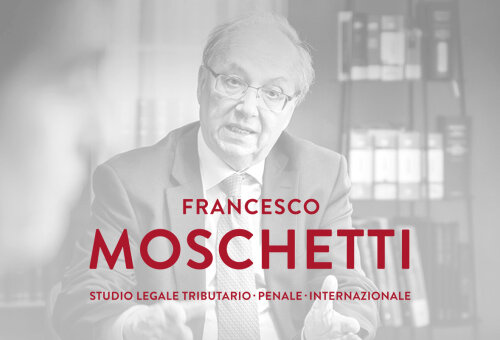Best Gaming Lawyers in Rome
Share your needs with us, get contacted by law firms.
Free. Takes 2 min.
List of the best lawyers in Rome, Italy
About Gaming Law in Rome, Italy
Gaming law in Rome, Italy, is part of the wider Italian legal framework that regulates gambling activities. This includes various forms of betting, gaming through electronic machines, lotteries, and online gambling platforms. The Italian Agency of Customs and Monopolies (Agenzia delle Dogane e dei Monopoli) is the main regulatory body governing these activities, ensuring that operators comply with national laws and regulations. In Rome, as in the rest of Italy, the gaming industry is strictly controlled with the aim to prevent issues like gambling addiction, money laundering, and to safeguard public order.
Why You May Need a Lawyer
There are numerous situations in the gaming industry that might necessitate legal assistance. Business entrepreneurs looking to establish a gaming company or venture would need to navigate through complex licensing procedures. Intellectual property disputes may also arise from the development and distribution of gaming software. Additionally, cases concerning compliance with advertising restrictions or consumer protection laws could require expert legal insight. For individuals, issues may pertain to gaming-related disputes, earnings, taxation, or even criminal charges related to unlawful gaming activities.
Local Laws Overview
The central pieces of legislation governing gaming in Rome are the "AAMS regulations" (now part of the Customs and Monopolies Agency regulations) and the so-called "Balduzzi Decree", among others. These laws stipulate the requirements for acquiring gaming licenses, the types of permissible games, advertising guidelines, and anti-money laundering procedures that gaming companies must follow. Restrictions are also placed on the location and number of slot machines. Online gambling has specific regulations that require operators to obtain an Italian license to offer services to Italian residents. Additionally, the city of Rome enforces its own regulations on gaming establishments to ensure they comply with local policies and community standards.
Frequently Asked Questions
Is online gambling legal in Rome, Italy?
Yes, online gambling is legal in Italy, provided the service operator has obtained the necessary license from the Italian authorities.
Are there any age restrictions for gambling in Rome?
Individuals must be at least 18 years old to legally participate in gambling activities in Rome and the entire country of Italy.
Can I open a betting shop in Rome?
Opening a betting shop is possible but requires a license granted by the Italian Agency of Customs and Monopolies. Strict regulations apply and legal counsel is highly recommended to navigate the process.
Are winnings from gambling taxable in Italy?
Yes, gambling winnings can be subject to taxes, especially for larger sums. It's advisable to consult a tax lawyer to understand how this may apply to individual situations.
What should I do if I've been accused of illegal gambling activities?
If you are facing allegations of illegal gambling activities, it is crucial to seek legal help immediately to ensure your rights are protected and to navigate the complexities of the legal system.
How can I ensure that my new gaming platform complies with Italian law?
Consultation with a lawyer specializing in gaming law is the best way to ensure your platform complies with all Italian legal requirements, including licensing, consumer protection, and data privacy laws.
Can I advertise my gaming business in Rome?
Advertising of gaming businesses is permitted, however, there are strict guidelines and regulations that must be followed. A lawyer can help you understand these restrictions to avoid potential penalties.
What legal issues can arise from developing a video game in Italy?
Legal issues can include intellectual property disputes, copyright infringement, employment agreements, and compliance with privacy law, amongst others. Proper legal advice is crucial for video game developers.
Are there any specific laws for operating electronic gaming machines in Rome?
Yes, there are specific laws and regulations concerning the operation, number, and placement of electronic gaming machines, as well as the percentage of payouts, which a lawyer familiar with gaming laws would be able to explain in detail.
Who regulates the gaming industry in Rome?
The gaming industry in Rome, as in the rest of Italy, is regulated by the Italian Agency of Customs and Monopolies (ADM).
Additional Resources
For those seeking legal advice on gaming in Rome, the Italian Agency of Customs and Monopolies (ADM) is a principal resource. The European Gaming and Betting Association (EGBA) is also a useful reference for understanding the broader European context. Additionally, consulting with legal firms or lawyers who specialize in Italian gaming law can be invaluable. Legal aid societies in Rome may provide assistance or referrals for those requiring more affordable options.
Next Steps
If you need legal assistance in gaming, it is important to consult with a lawyer who specialises in this field. Begin by researching reputable law firms in Rome that handle gaming matters. Prepare any documents and information related to your concern, question, or business and make an appointment for a consultation. The lawyer will guide you through the steps you need to take, inform you about any documentation you will be required to produce, and represent you in dealings with regulatory bodies or in court if necessary.
Lawzana helps you find the best lawyers and law firms in Rome through a curated and pre-screened list of qualified legal professionals. Our platform offers rankings and detailed profiles of attorneys and law firms, allowing you to compare based on practice areas, including Gaming, experience, and client feedback.
Each profile includes a description of the firm's areas of practice, client reviews, team members and partners, year of establishment, spoken languages, office locations, contact information, social media presence, and any published articles or resources. Most firms on our platform speak English and are experienced in both local and international legal matters.
Get a quote from top-rated law firms in Rome, Italy — quickly, securely, and without unnecessary hassle.
Disclaimer:
The information provided on this page is for general informational purposes only and does not constitute legal advice. While we strive to ensure the accuracy and relevance of the content, legal information may change over time, and interpretations of the law can vary. You should always consult with a qualified legal professional for advice specific to your situation.
We disclaim all liability for actions taken or not taken based on the content of this page. If you believe any information is incorrect or outdated, please contact us, and we will review and update it where appropriate.
















